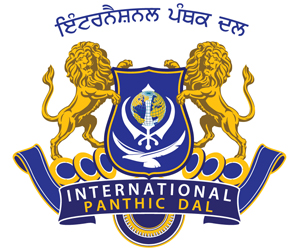KITCHENER — Ajmer S. Mandur has had his motorcycle licence for more than two decades, but he hasn’t actually ridden a motorcycle in this province since the early 1990s.
He used to let his hair down — literally — and hop on for a ride. But since getting married and having kids, he doesn’t want to break with his faith.
Mandur is a Khalsa Sikh, which means he observes a religious practice that forbids cutting, trimming or otherwise removing any hair on his body. He’s also required to wear a dastaar, or turban.
“I really don’t like to be in public with no turban,” Mandur said. “It’s just the way I was raised.”
He’s just one of many Sikhs in Ontario calling for an exemption to the province’s motorcycle helmet law. They cite freedom of religion with an increasingly unified voice.
On Sept. 11, members of the regional Sikh community met at a Kitchener gurdwara, or temple, to lend their names and voices to a growing petition that seeks an exemption to the helmet law for turban-wearing Sikhs.
Of the more than 30 men present, both young and old said they would buy a motorcycle if the law was amended.
The Ontario Highway Traffic Act currently requires all motorcyclists to wear a helmet. This poses a problem for Sikhs, whose turbans don’t fit under most helmets.
The Highway Traffic Act also requires anyone under the age of 18 to wear a helmet while bicycling. While the Canadian Sikh Association would like this amended as well, it’s focusing on motorcycles.
“Asking someone to take off their turban is literally like asking them to take off their clothes. That’s how it’s viewed,” said Baljit Singh Ghuman, chair of the Canadian Sikh Association. “It’s part of the religion. It’s part of the lifestyle.”
The Canadian Sikh Association organized the meeting. It’s been holding similar public meetings in Sikh communities throughout the province in the run-up to the Oct. 6 provincial election.
“This is the one issue the whole community seems to be united behind,” said Ghuman.
Both British Columbia and Manitoba have exemptions in their helmet laws for turban-wearing Sikhs, but an Ontario Superior Court Justice dismissed a challenge to the law in 2008.
In 2008, the most recent data available, 53 people died in motorcycle accidents in Ontario (three of them were passengers).
In an analysis of factors that contributed to those fatalities, 9.8 per cent were found to be a result of the rider not wearing a helmet.
But 51 per cent died as a result of speed and the driver losing control.
An analysis of the data dating back to 1993 shows this ratio is relatively consistent: the percentage of fatalities attributed to speed ranges from 43 per cent to 60 per cent, while the percentage of fatalities attributed to not wearing a helmet ranges from five per cent to 18 per cent.
The Ministry of Transportation stated its position in an email: “Research has shown that motorcycle helmets are effective in reducing the incidence of head injury … This focus (on safety) is one of the reasons why Ontario has the safest roads in North America.”
It also pointed out that, “The Ontario Court of Justice recently ruled that Ontario’s mandatory helmet requirement does not infringe upon the freedom of religion or equality rights of the Charter, nor violates the Human Rights Code.”
The Ministry cites a 1996 study that found motorcycle helmets were 67 per cent effective in preventing serious brain injury, and a 2004 study showed they were 37 per cent effective in preventing fatal injuries.
But some suggest that at over 50 kilometres an hour, helmets do not affect an accident’s outcome.
The last time the helmet issue was brought to Queen’s Park was in 1988, when a private member’s bill that would have granted Sikhs such an exemption failed.
John Milloy, the Kitchener Centre MPP who’s running for re-election for the Liberals, said Premier Dalton McGuinty has announced his intentions to “have a conversation” about the issue should he win re-election.
Milloy said it’s a very complicated issue that melds public safety and freedom of religion. He supports his party’s stance and would be open to having that conversation when the election is over.
J.D. McGuire, who’s running for the Green party in Kitchener-Waterloo, said in an email that he’s very open to having a conversation with the Sikh community about the issue, should he be elected.
“I personally wouldn’t support a law that endangers any Ontarian,” said Mark Cairns, NDP candidate for Kitchener-Conestoga, the riding that contains the temple. “I don’t see how someone could get away with not wearing their seatbelt in a car based on some matter of religious freedom.”
Candidates for the Progressive Conservative party declined to comment on the issue, but the official party line is “public safety should be the top concern.”
Yet, the B.C. ruling stated the “marginal risk and costs associated with unhelmeted motorcycle riding does not constitute undue hardship” to the province.
The 1999 ruling “found that the unhelmeted rider alone bears the risks associated with riding a motorcycle without a helmet.”
The tribunal’s findings highlighted the fact that, since motorcyclists are more likely to die or be seriously injured than automobile drivers, there’s a certain level of societal risk that’s accepted. And, as there was insufficient evidence to prove that unhelmeted riding for as small a population as the Sikh community posed a statistically significant risk to public safety, the tribunal ruled the helmet law was discriminatory.
The practice of not cutting one’s hair (referred to as Kesh) is one of Sikhism five Ks, rules every baptized member must follow. Despite the fact that only Sikh men wear the turban, it is not a gendered practice. Women are also forbidden from cutting or otherwise altering any body hair and are expected to wear the kirpan — a small knife Sikhs carry that’s another of the five Ks.
The kirpan has been another source of controversy for the faith, as Sikhs have had to fight for their right to carry what’s perceived as a weapon into stadiums, public buildings and public schools.
The 2001 census (the last year religious data was collected until the 2011 numbers are released) reported just over 77,000 Sikhs in Ontario. Estimates place the current population at more than 100,000.
News Source: The Record








